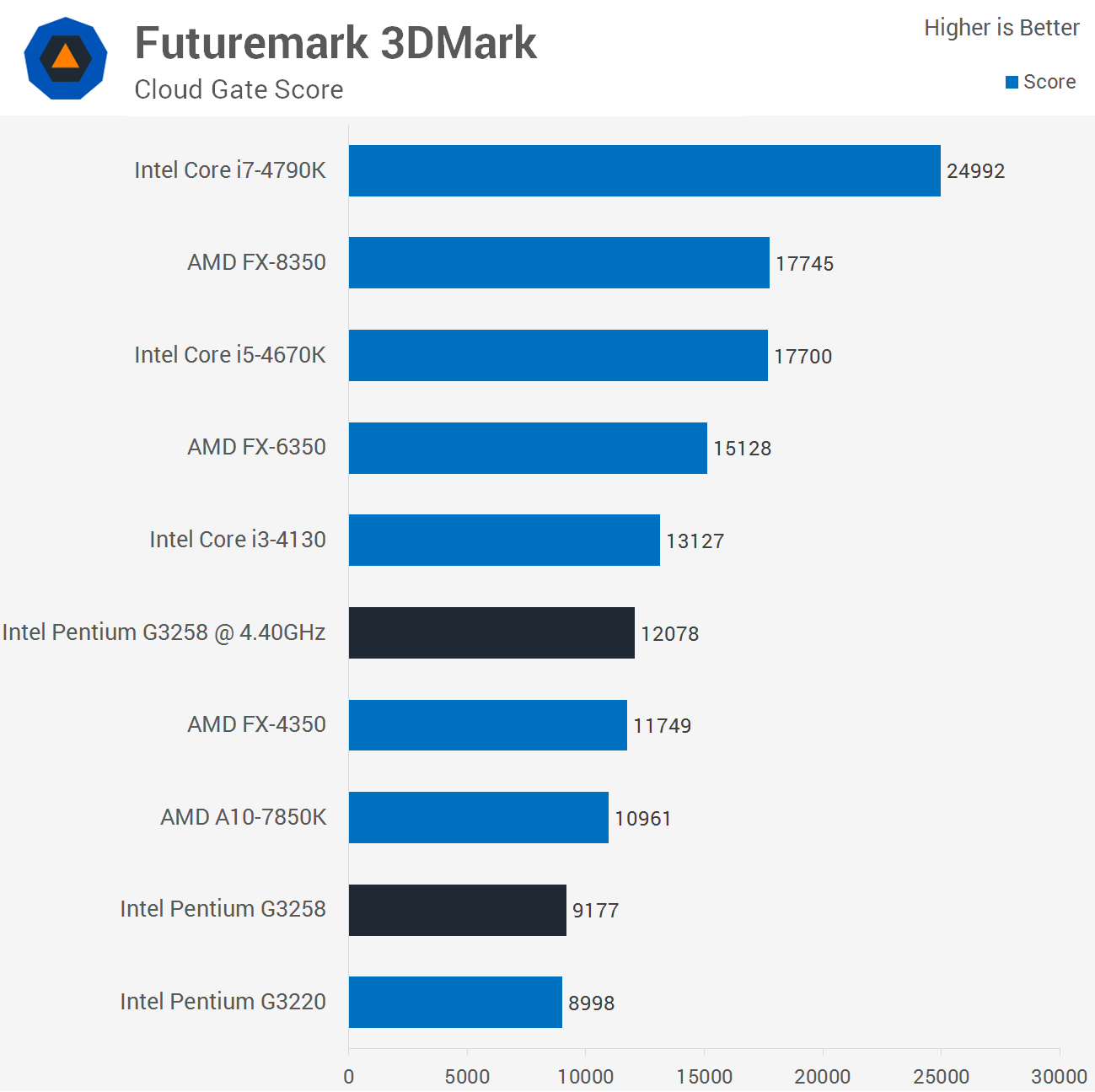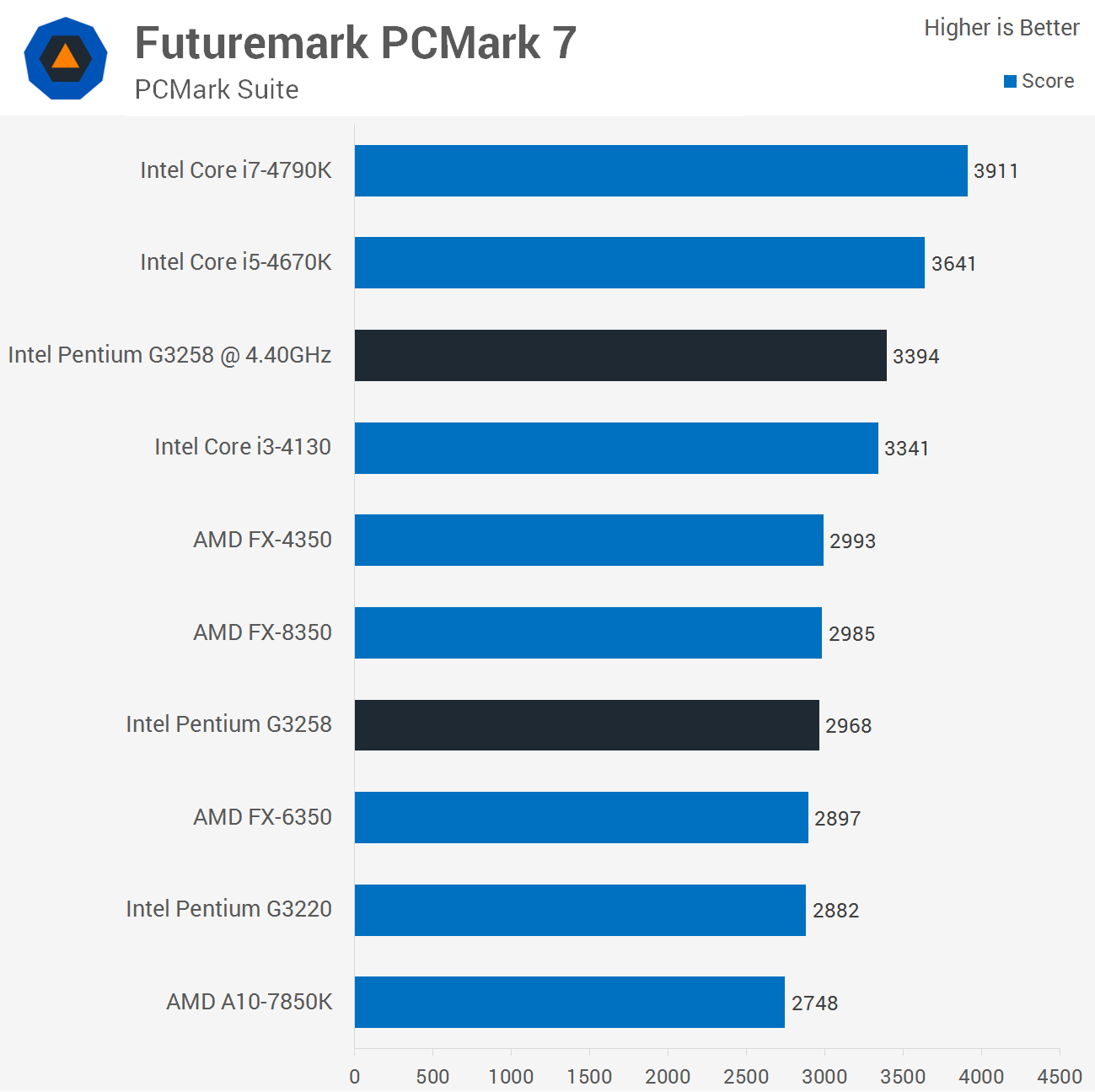Synthetic Benchmarks

3DMark's Cloud Gate test measures both CPU and GPU performance with two graphics tests as well as a physics test that is run on the CPU. The dual-core Intel Pentium G3258 struggles with the physics test and this is why it scores so poorly in stock form. At its standard 3.2GHz frequency, the G3258 is much slower than an AMD A10-7850K for the simple fact that it doesn't have enough threads.
Overclocking the G3258 helps quite a lot, boosting performance by over 30%, resulting in a score of over 12,000pts. Still this means the overclocked Pentium processor is 8% slower than the Core i3-4130 and 32% slower than a Core i5-4670K and FX-8350 in this test.

Unlike 3DMark's Cloud Gate test, the older 3DMark 06 suite doesn't focus as much on CPU performance. As a result, the Intel Pentium G3258 scores much better, with even its stock form beating the AMD FX-8350. Overclocked to 4.4GHz the G3258 was 16% faster than the Core i3-4130 and just 6% slower than the Core i5-4670K.

PCMark 7 also pushes both CPU and GPU performance though it is kinder to the Intel Pentium G3258 than the Cloud Gate test, placing the chip alongside AMD's FX-8350 before any overclocking even takes place. Once overclocked, the G3258 enjoyed a 14% boost to 3394pts, which placed it on par with the Core i3-4130 and just 7% behind the Core i5-4670K.
